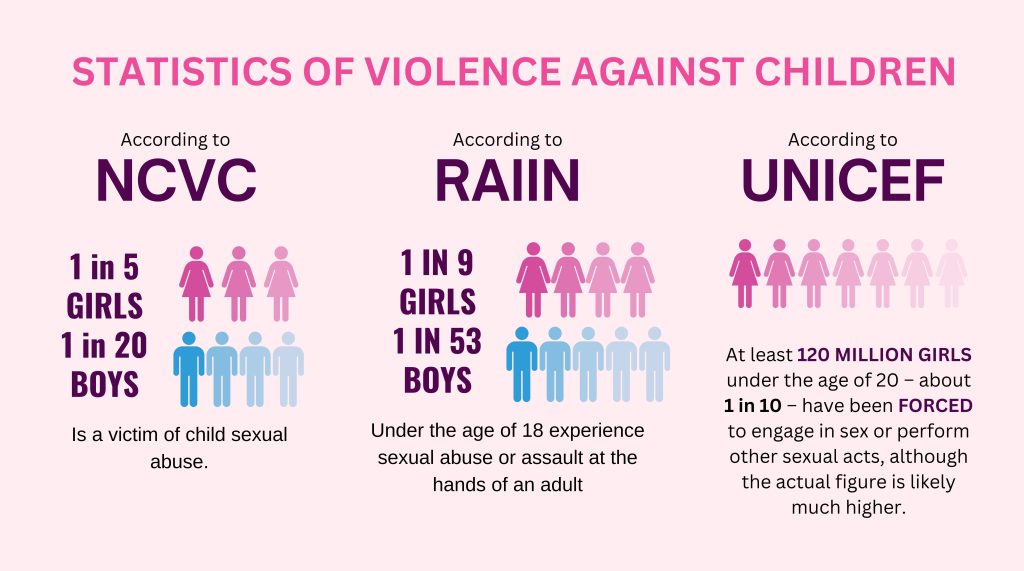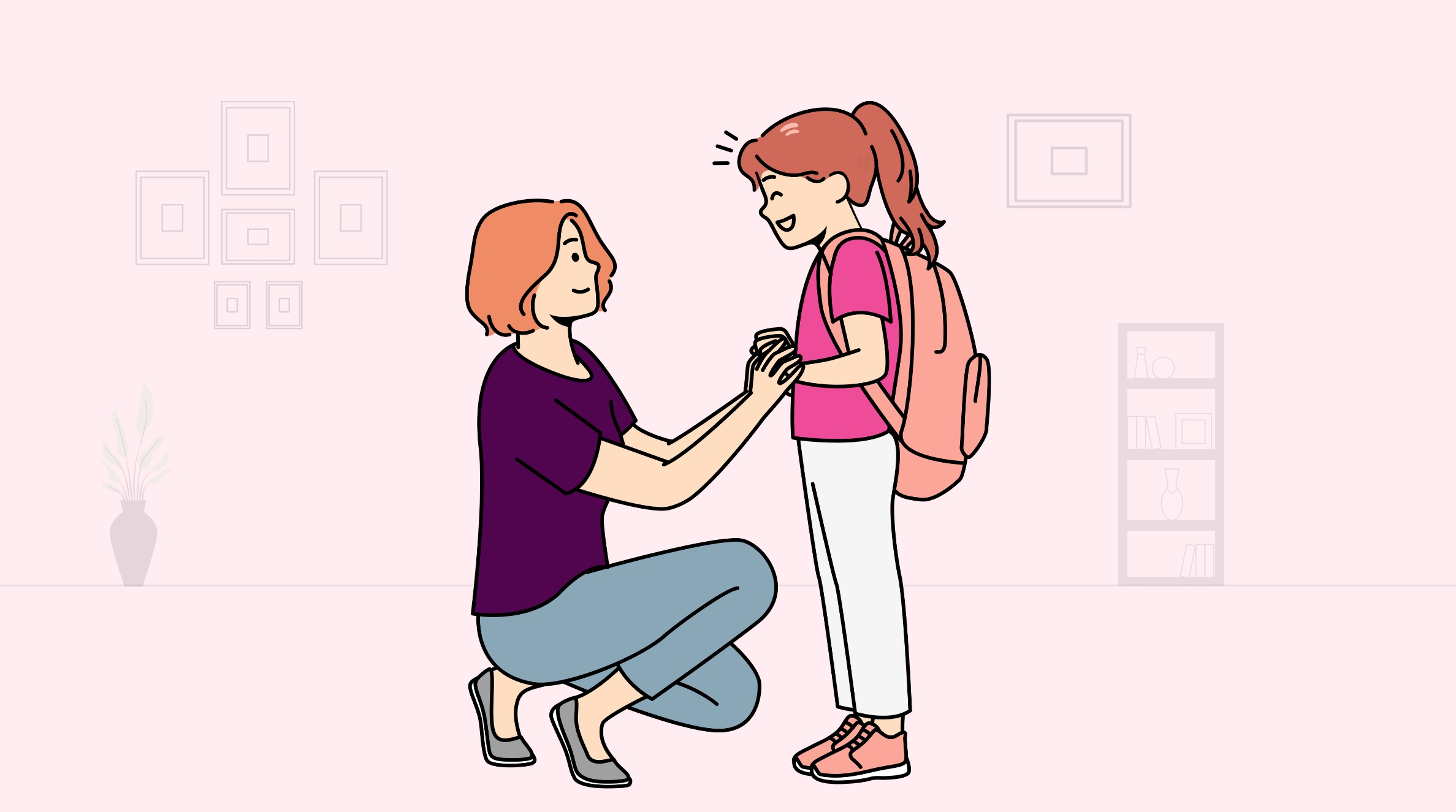Child sexual abuse is a heart breaking reality for far too many young people. It is important to remember that sexual abuse does not always involve physical touching. Abusers may also expose children to videos or images of a sexual nature, and engage in sexually explicit conversations with a child, often in an attempt to normalize this type of behavior.
It can be extremely confusing and damaging for a young person, as it can make them think that this type of behavior is acceptable or even necessary.
It is crucial that adults provide children with accurate information about healthy sexual relationships so that they can recognize abusive behavior if it occurs. The following are statistics concerning child sexual abuse according to RAIIN, UNICEF and the NCVC.

These numbers are staggering, but they don’t have to be inevitable. If we talk to our children about sexual abuse, we can empower them with the knowledge and tools they need to protect themselves.
How can parents prevent child sexual abuse?
There are a variety of reasons why children don’t speak up about abuse, including shame, fear, confusion, and loyalty to the abuser. As a parent or guardian, you can help encourage your child to speak up by creating a safe and open environment where they feel comfortable talking about sensitive topics. Here are a few tips on how to do just that.
Create a Safe Environment
The first step is to create a safe environment where your child feels comfortable talking to you about anything and everything. This means letting them know that they can come to you with any problem, big or small. It also means being open-minded and non-judgmental; no matter what your child says, try not to react with shock or anger. Instead, simply listen and provide support.
Teach and trust
Talk about sexual abuse openly and honestly with children. This means having frank conversations about bodies and personal boundaries, as well as teaching children that they have a right to say no to any type of physical touch that makes them uncomfortable. It also means being open to listening if a child does disclose that they have been abused; believe them, support them, and get them help from professionals who can assist in their healing process.
Educate yourself
Another way to create a safe environment is by educating yourself on the topic of sexual abuse. This way, you can be prepared with accurate information if your child does come to you with a disclosure. Youth-serving organizations are available to provide information on prevention, risk, and reduction strategies. There are also a number of great resources available online that can provide the required information.
Talk About It Regularly
It’s not enough to just create a safe environment for your children; you also need to talk about sensitive topics on a regular basis. This normalizes these types of conversations and makes it more likely that your child will come to you if something happens. You don’t need to wait for your child to bring up the topic; instead, proactively bring it up yourself from time to time. For example, you could say something like, “I saw on the news that there was a case of sexual abuse at the local elementary school. What do you think about that?” Keep the lines of communication open so that your child knows they can always come to you with any concerns.
Be Aware of Warning Signs
In addition to talking about sexual abuse regularly, it’s also important to be aware of warning signs that could indicate that your child is being abused. These warning signs can vary depending on the age of the child but may include changes in behavior (e.g., withdrawn or aggressive behavior), changes in appearance (e.g., bruises or sexually transmitted infections), and changes in sleeping patterns (e.g,, difficulty sleeping or nightmares). Of course, it’s important to keep in mind that not all children who exhibit these warning signs have been abused; however, any sudden or dramatic changes in your child’s behavior should be investigated further.
Conclusion:
No one wants to think about the possibility of their child being sexually abused; however, if they suspect a child is being sexually abused, it’s vital to take action – but not necessarily by confronting the suspected abuser themselves. The first step should always be to contact authorities or professionals who can investigate further; this ensures that the safety of the child comes first, and it also protects the rights of everyone involved. Sexual abuse is a difficult topic to think about, but by taking these steps we can all play a role in making sure children are protected from harm.
